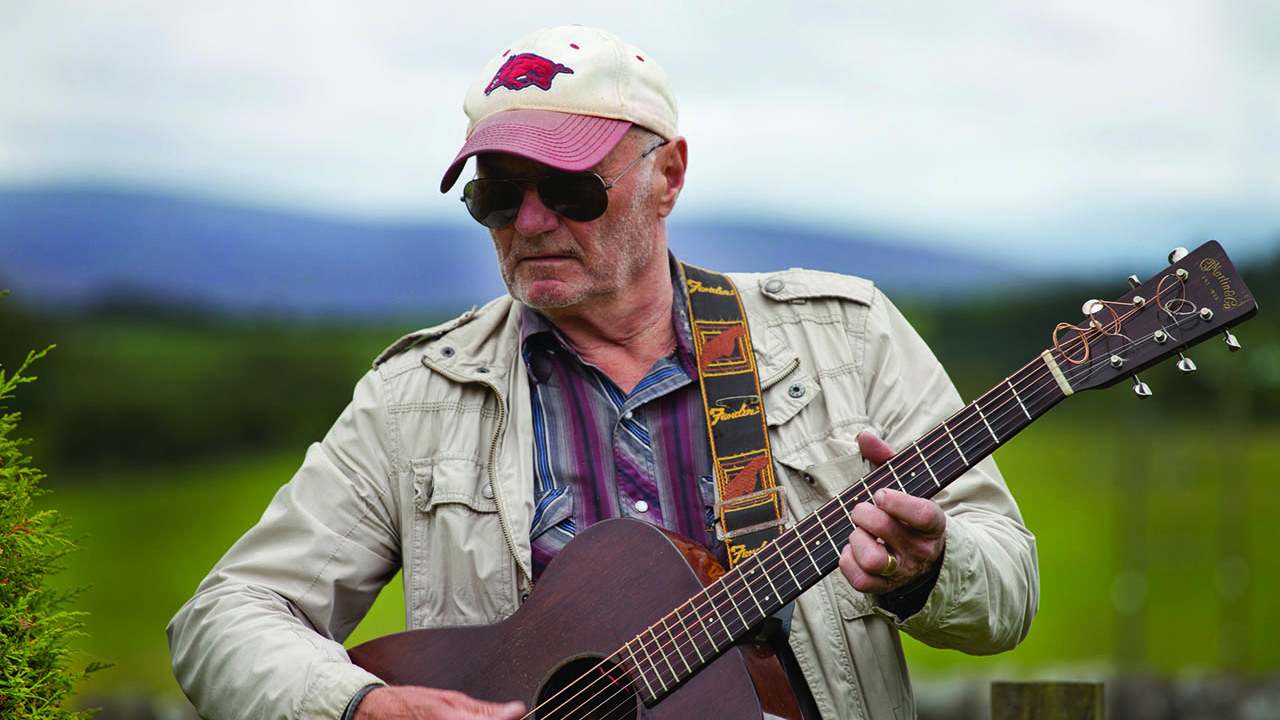Exactly half a decadehas passed since Michael Chapman made his live debut, during which time he has established himself as one of Britain’s most progressive singer-guitarists, creating work in which rock, blues, jazz and avant-folk share equal weight. In recent times he’s become the unofficial totem for a dazzling new breed of US players, some of whom – Steve Gunn, Nathan Bowles, James Elkington – fetch up on the 75-year-old’s ravishing new album, the aptly titled 50.
What made you record the album in New York with Steve Gunn as producer?
Every English musician has always wanted to make a record in America, for America, with local players. And I’ve finally done it. I asked Steve to ride shotgun because I wanted the record to be different. But when I got the first mixes back, I told him: “You’re not putting my fucking name on that. Do it again.”
What didn’t you like about it?
It sounded horrible – very dense and nowhere near the record I would’ve made on my own. But in a way that was the idea, to get me out of my comfort zone. And they got it right in the end. You don’t go into the studio with a bunch of great players like that and not turn them loose.
Lyrically, does a song such as Memphis In Winter come from first‑hand experience?
One night in 1997 I was driving too fast across Oklahoma in sleet and ice, trying to get across the bridge into Memphis. And I got pulled over by the cops. I managed to talk myself out of it, but by the time I made it to Memphis, it was a full-scale blizzard and all the hobos and homeless were trying to keep warm in the streets. There were people literally dying in shop doorways that night, and nobody seemed to give a fuck. Most of my songs are about me, so it seems to take some kind of apocalyptic event to write one like that.
One of the album’s guests is Bridget St John, who you first played with in 1968 at Les Cousins folk club in Soho.
She and I have been doing stuff together for donkey’s years. There’s something about the combination of our voices that works. Cousins was the place to play back then. There was Roy Harper, Al Stewart, Davy Graham, John Renbourn, Bert Jansch. I wasn’t from the folk tradition at all – I came out of the jazzy end of blues. And I refused to become part of the London acoustic guitar mafia.
How did you become a godfather figure to the new generation of American musicians?
It’s weird, isn’t it? They’re all a third my age. The first guy I met was Jack Rose, a monster player, and Glenn Jones; then at the younger end were people like Steve, William Tyler, Ryley Walker and Daniel Bachman. I seem to be the connection. I kind of introduced them to each other by doing shows together.
You dedicate 50 to “all those who didn’t make it that far”. Were you thinking of anyone in particular?
That’s the problem, the list grows ever longer. The one piece of good news is that I’m not on it. Who’d have thought I’d still be doing this after fifty years?
50 is released on January 20 via Paradise Of Bachelors.

